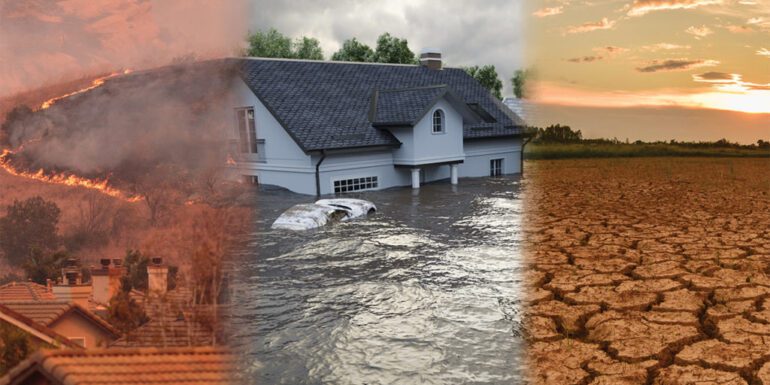TL;DR:
- McCain Foods relies on ClimateAi to navigate climate-related uncertainties in agriculture.
- ClimateAi offers AI-driven climate risk modeling for short- and long-term insights.
- The platform assesses meteorological data, crop stages, and financial factors.
- Clients see substantial returns on investment, thanks to actionable insights.
- ClimateAi holds five patents for its advanced technology and serves global food brands.
- It accelerates seed development and aids in weather-based decision-making.
- Advanta Seeds experienced a 10% sales boost and improved customer loyalty.
- ClimateAi helps identify lower-risk locations for planting and investment opportunities.
- The platform is crucial for wine and spirits companies exploring climate-adaptive options.
- It plans to collaborate with government agencies for a wider impact.
Main AI News:
In a rapidly changing world where climate disruptions pose a growing threat to agriculture, companies like McCain Foods are turning to innovative solutions to secure their future in the frozen food aisle. With a history of being known for its delectable onion rings and sweet potato fries, McCain Foods aims to maintain its reputation over the next decade. However, the unpredictability of sweet potato fields and onion crops due to shifting weather patterns and rising global temperatures has raised concerns.
Enter ClimateAi, an AI-driven Software as a Service (SaaS) product that specializes in climate risk modeling. This cutting-edge platform provides both short- and long-term insights into the impact of weather and climate changes on food and beverage companies. ClimateAi empowers businesses to identify necessary actions to adapt to these climate challenges, ensuring a sustainable future.
For McCain Foods, ClimateAi conducted a comprehensive assessment of crop risks across various geographic regions. This assessment led to detailed recommendations on how McCain should adjust its farming practices to maintain optimal yields and value, even down to the microclimate level. Furthermore, ClimateAi didn’t just stop at crop assessments; it also evaluated the potential financial impact of these climate-related changes.
Himanshu Gupta, the co-founder and CEO of ClimateAi, emphasized the critical importance and urgency of adaptation in combating climate change. The platform’s wide-ranging risk analysis encompasses meteorological and climate data, crop development stages, location-specific attributes, and economic and financial factors. By analyzing this wealth of information, ClimateAi can predict extreme weather events up to two decades in advance and employ machine learning to recommend strategic actions. All this valuable data is presented through a user-friendly computer dashboard, allowing customization by region, timeline, and specific crop.
The results of this critical information access have been transformative for ClimateAi’s clients. Investments in heat-tolerant cranberries, the development of climate-resistant seeds, and a remarkable return on investment (ROI) ranging from 10 to 17 times have been some of the significant outcomes.
ClimateAi boasts five patents for its technology, which incorporates physics-driven AI and a hybrid machine learning technique akin to those used in self-driving cars. Clients can enhance forecasts by integrating proprietary data, enabling them to create hyperlocal forecasts across hourly, seasonal, yearly, and decadal time scales. To date, ClimateAi has aggregated data from 35 countries, covering more than 40 different crops and serving over 20 major food industry brands.
Gupta also stressed that ClimateAi’s machine learning technology is invaluable to research and development teams at food companies. It helps them anticipate production and supply chain risks in the coming decade, notably in identifying new seed varieties adapted to changing environments. Previously, seed companies would require years of trials to determine the traits necessary for successful growth in specific microclimates. With AI technology, this process has become significantly faster and more cost-effective.
One notable case is Advanta Seeds, a high-performance agricultural seed developer that benefited immensely from ClimateAi’s predictive modeling. The software alerted Advanta’s operations team to impending wet conditions that would have impacted the harvest. This early warning allowed them to harvest early, preventing substantial financial losses. Similarly, ClimateAi accurately forecasted an unexpected precipitation event two months ahead, enabling Advanta to send seeds to regional farm customers ahead of time. This decision alone led to a 10% increase in sales and strengthened customer loyalty.
In addition to risk mitigation, ClimateAi’s software assists clients in identifying lower-risk locations for future planting, thus unveiling potential investment opportunities. This feature has been particularly welcomed by wine and spirits companies looking to explore opportunities in previously unsuitable U.K. farmland for grape growing and barley production for whiskey. ClimateAi can also suggest wine grape varieties that are more likely to thrive amid the uncertainty of climate change, such as Marselan, currently being cultivated in Uruguay.
Looking forward, Himanshu Gupta is working on launching a ClimateAi impact product in collaboration with government agencies. Hailing from India, Gupta’s previous experience includes renewable energy initiatives and emissions modeling for India’s commitments under the Paris climate accord. Gupta and his co-founder, Max Evans, share a deep-rooted commitment to helping farming communities most affected by climate change.
As Gupta aptly puts it, “We’re already feeling these impacts in our supply chains and food security today.” ClimateAi’s mission is to build resilience, improve rural livelihoods, and enhance the understanding, management, and communication of climate risks among all stakeholders. In a world where climate change is no longer a distant threat but a present reality, ClimateAi stands at the forefront of innovation, offering a beacon of hope for a sustainable future in the agricultural sector.
Conclusion:
ClimateAi’s advanced AI-driven solutions are revolutionizing the agricultural sector, offering vital tools to adapt to climate change challenges. This technology not only ensures food companies’ sustainability but also presents significant market opportunities, particularly in the development of climate-resistant seeds and the expansion of farming into previously unsuitable regions. As climate change continues to impact supply chains and food security, businesses that embrace such innovative solutions will gain a competitive edge in the market and contribute to building a more resilient and sustainable future.

